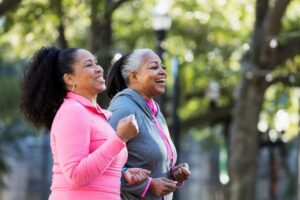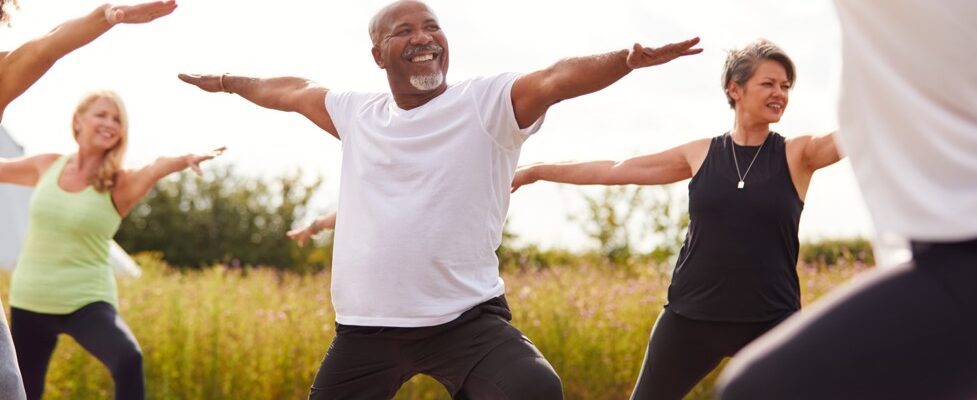
The Active Hospitals project aims to get us talking about why physical activity is important for our health.
Physical inactivity is linked to 1-in-6 deaths in the UK. Moving more helps our physical and mental health and reduces the risk of common conditions such as type 2 diabetes, heart disease, and depression.

What is physical activity?
Physical activity is any activity that requires you to use more energy than resting, and it incorporates many of the activities carried out as part of the daily routine. This could include housework, gardening, walking the dog, or playing with grandchildren. Physical activity makes your heart beat a little faster, makes you feel a little warmer, and breathe a little faster. In general, the more time spent being physically active, the greater the health benefits. However, the gains are especially significant for those currently doing the lowest levels of activity (fewer than 30 minutes per week), as the improvements in health per additional minute of physical activity will be proportionately greater.
Physical activity can:
- Improve your mental wellbeing and mood and helps to manage anxiety and depression
- Help you sleep better, giving you more energy in the day
- Help control excess weight gain
- Improve the fitness of your heart and lungs making it easier to perform day-to-day activities
- Improve musculoskeletal health by strengthening muscles and increasing bone density, reducing the risk of frailty and falls
Every minute counts. Some is good. More is better!
Long periods of time-spent sitting/lying down can increase the risk of many common health conditions. Try and reduce the total amount of time you spend sitting/lying down and break this up by standing regularly, and moving around for a few minutes.

Try to do activities that strengthen your muscles at least twice a week. This could include activities such as carrying heavy shopping, digging in the garden, or pushing a buggy or a wheelchair. It is important to practice activities that improve or maintain our balance as we get older.
Click on the following link to find out more about the Active Therapies Programme
